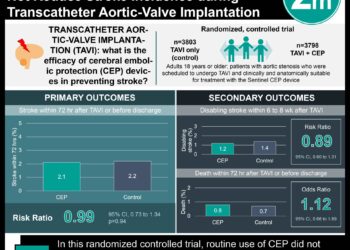Potential gene target identified for colorectal cancer treatment [PreClinical]
1. Blocking Tacc3, a gene involved in mitotic spindle assembly, decreased the proliferation of intestinal stem cells in a 3D cell culture system.
2. When Tacc3 was blocked in a mouse model of colorectal cancer, a decrease in tumor growth and increase in survival were observed.
Evidence Rating Level: 2 (Good)
Study Rundown: One of the most common genetic mutations found in human colorectal cancer is an inactivating mutation in the adenomatous polyposis coli (Apc) protein, leading to an increase in expression and renewal of intestinal stem cells. Following Apc inactivation, the gene TOGp is constitutively overexpressed in colorectal cancers. Because TOGp is known to interact with Tacc3, the potential therapeutic efficacy of inhibiting Tacc3 was assessed in this study.
First, organoid 3D cell cultures were used to evaluate the effect of Apc and Tacc3 inactivation on intestinal stem cell expression. When Apc was inactivated, there was a significant increase in the expression of stem cell markers. In addition, the crypt-like domains, areas in the intestine that naturally contain stem cells, were found to be expanded. Tacc3 was also located in these crypt-like domains, and deletion of this gene prevented the increase in stem cell expression and crypt domain expansion. Next, Apc-deficient mice were used as a model for colorectal cancer. Compared to mice that expressed Tacc3, the Tacc3 knockout mice had both a significantly increased survival rate as well as a decrease in tumor load.
The researchers in this study were able to not only decrease tumor growth in vitro and in vivo¸ but they also showed increased survival in mice. Although these experiments were preliminary, they have potential implications in treating colorectal cancer by directly targeting the Tacc3 gene. Further studies will need to assess the potential of a targeted therapeutic agent to inhibit this pathway and determine its efficacy in reducing tumor load.
Click to read the study in Oncogene
Relevant Reading: TACC3 promotes stemness and is a potential therapeutic target in hepatocellular carcinoma
In-Depth [animal study]: Both in vitro intestinal organoids and a mouse model were used to assess the location and function of Tacc3 in the context of Apc-inactivated colorectal cancer. In the intestinal organoid system, 4-hydroxytamoxifen treatment was used to inactivate Apc. Microarray and confirmatory qPCR analyses showed an increase in the expression of a variety of intestinal stem cell markers (p< 0.05). Immunofluorescence was then used to visualize the location of these stem cells, and their typical location, crypt-like domains, was found to be expanded. Upon Tacc3 inactivation, the increase in stem cell marker expression was prevented (p< 0.05), and crypt-like domains were not expanded.
Next, Apc-deficient mice were genetically engineered to have either Tacc3 conditional expression or complete Tacc3 disruption. Tumor growth and survival were evaluated, and there was a significant increase in survival (p< 0.0001) and a significant decrease in tumor load (p< 0.05) for the Tacc3 complete knockout animals.
Finally, the specific subset of stem cells affected by Tacc3 disruption was analyzed using immunofluorescence. Adenomas from mice that did not express Tacc3 were found to have decreased expression of Lgr5, one of the stem cell expression markers. In contrast, another stem cell marker, EphB2, was still expressed.
Image: PD
©2016 2 Minute Medicine, Inc. All rights reserved. No works may be reproduced without expressed written consent from 2 Minute Medicine, Inc. Inquire about licensing here. No article should be construed as medical advice and is not intended as such by the authors or by 2 Minute Medicine, Inc.







